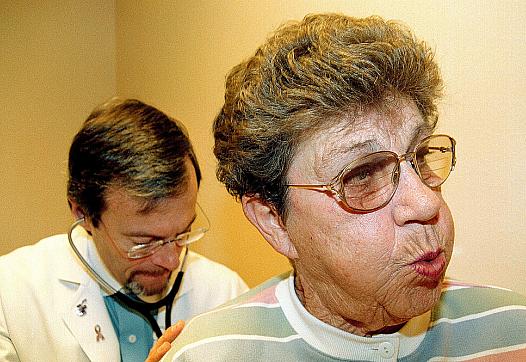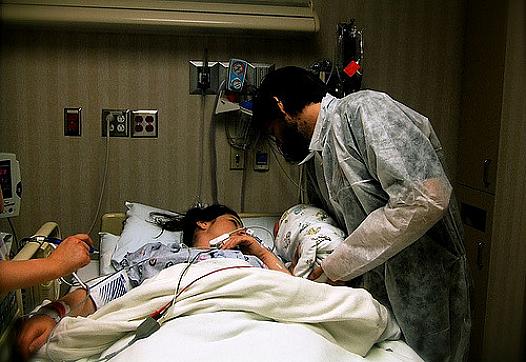
“We expected to find a larger difference between plans on and off the exchange,” said researcher Simon Haeder. “In both cases, it was very unlikely to get an appointment.”

“We expected to find a larger difference between plans on and off the exchange,” said researcher Simon Haeder. “In both cases, it was very unlikely to get an appointment.”

Criminalizing pregnant women and new mothers for drug dependency problems leads to poorer health outcomes while disproportionately punishing low-income women of color, argues maternal health advocate Emily Eckert.

The secretive world of pharmaceutical pricing is mired in opacity. To investigate how pricey drugs are impacting California’s budget, reporter Pauline Bartolone found she had to be creative, flexible and persistent in her data sleuthing.

The goal of health care spending is to achieve good health results, and that requires measuring and rewarding success. Unfortunately, the measures likely to be used for the next stage of health reform won’t get us there.

In 2012, a surgical team mistakenly removed Paul Kibbett’s healthy left kidney rather than the cancerous tumor on the right side. Since then, the hospital has worked to build a culture where reporting mistakes is celebrated.

Variation in C-section rates has been well explored, but journalistically, there is much more to do: What is the impact on women from these surgeries? What are the costs? What strategies are working to reduce rates?

Journalists can and should hold local hospitals accountable for matching a stated commitment to transparency with concrete actions. It's a difficult job, but here are some ways reporters can get started.

This report was produced as a project for the 2015 California Data Fellowship, a program of the Center for Health Journalism at the USC Annenberg School for Communication and Journalism.
Other stories in the series include:
Sharpening the focus on medical errors
Do penalties reduce medical errors?

A new data-rich almanac on maternity care in California highlights persistent racial disparities in prenatal care and maternal mortality rates.

Leading health policy experts zeroed in on problems with the “pay for performance” health care model in our webinar this week. Here's why they say the program needs to "hit the refresh button," and how reporters can cover it.